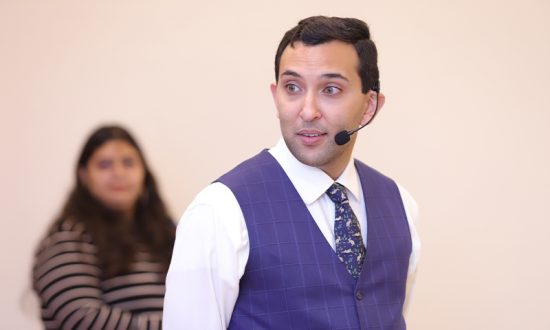Rahul is an education coach and a Start-up co-founder devoted to building creative organizations that impact and uplift societies. His primary venture, Athena Education, helps students become the best versions of themselves and receive admission to top universities around the world. Rahul went to high school in Fremont, California. He received perfect SAT scores and got into every Ivy-League college he applied to, finally choosing Princeton over Harvard. At Princeton, he studied Politics with a certificate in Political Economy. Post his graduation, Rahul served as a Director of College Counselling at a prestigious college counseling and test prep company in California.
“Sharmaji’s beti won so many MUN awards. She’s now studying political science at Columbia. Ask Fraz to stop wasting his time going on cycling marathons and start focusing on MUNs!”
While Ahmad chacha’s advice is well-intentioned, it perpetuates the misguided notion of a set formula churning out the ideal extracurricular profile for Ivy-League admissions. The equation often looks something like this: Debating + Volunteering + Outstanding Academics + Head Girl = Harvard. What is more intuitive than following in the footsteps of a successful applicant, right? This straightjacketed approach, however, fails to yield the sum it promises. Mostly because it does not address a fundamental question an applicant must seek to answer—“what do you bring to the table that no one else does?” It goes without saying, if it is something only you can offer, it ought to be distinct; and if it is distinct, a formula is not going to suffice. Period.
What, then, is the key to answering this question successfully? Just freestyle the admissions process, and hope for the best? Well, not quite. You must have a strategy, but one that does justice to your unique identity—or, as we at Athena like to put it, aligns with your brand.
No, we do not recommend that all students set up a business (unless of course you want to be the next Willy Wonka; in that case, go ahead!). What we do insist on is articulating your human brand. A company’s brand enables it to communicate its core identity and distinctiveness. The same principle applies to people: MS Dhoni is known as “Captain Cool” and Elon Musk as “Technoking”—titles conveying the two individuals’ brands.
Thus, to answer the question of “what do you bring to the table that no one else does?”, you must begin by asking yourself, “what is my human brand?”, and then pursue extracurriculars that back your brand with evidence. After all, no one would care if Nike’s tagline were “just do it” or “don’t do it” if it did not produce the kind of sports products it does.
Now, how does one go about figuring out what their brand is? At a fundamental level, building your brand is an exercise in conceiving an authentic, coherent identity by weaving together different facets of your personality. And to recognize these different facets—you guessed it right—you must take the time to ask yourself some more questions. What do you do that brings you joy? What about the world frustrates you the most? What gets you excited about learning? The ancient maxim of “know thyself” comes in handy. Confused about how the answers to these questions would come together to form your brand? And how would you connect the brand to extracurriculars? Let’s take a few examples.
Student A: Fraz
What do you do that brings you joy?
Long distance cycling.
What about the world frustrates you the most?
The fact that hundreds go to bed hungry every night while food wastage keeps rising.
What gets you excited about learning?
New recipes.
Fraz’s brand: Gourmet Cyclist
Extracurricular project 1: Get in touch with local restaurants and encourage them to donate, at the end of each day, the excess food they are left with. Then put together and lead a team of cyclists who volunteer an hour every evening to collect food from restaurants and distribute it amongst the needy in your neighbourhood.
Extracurricular project 2: Establish a zero-waste food club at your school. The club’s mission would be to innovate and popularize zero-waste, climate positive, and delectable recipes through workshops and social media.
Student B: Sarah
What do you do that brings you joy?
Decoupage, the art of upcycling old household items by decorating them with coloured cutouts to create an inlay effect.
What about the world frustrates you the most?
The sparse investment in menstrual health and awareness.
What gets you excited about learning?
Entrepreneurial ventures.
Sarah’s brand: Decoupage Diva
Extracurricular project 1: Study small businesses to understand how a homerun enterprise can be established. Start selling decoupage products through social media. Expand by hiring unskilled women and training them in decoupage.
Extracurricular project 2: Use part of the profits earned through your business to organize menstrual awareness seminars for female labourers and invite specialists, such as gynaecologists. Funds permitting, organize regular health camps and distribute free sanitary napkins.
Student C: Naina
What do you do that brings you joy?
Building apps.
What about the world frustrates you the most?
The absence of quality special education for disabled students.
What gets you excited about learning?
Conducting academic research.
Naina’s brand: EdTech Wizard
Extracurricular project 1: Since cognitively disabled children are intrigued by digital gadgets, collaborate with special education teachers and psychologists to build an app that gamifies acquiring language and arithmetic skills.
Extracurricular project 2: Get in touch with educational NGOs for intellectually disabled children and encourage them to use the app. Once it is tested by a preliminary group for a significant amount of time, conduct evaluative research to study the impact of the app. Publish the research paper.
You see?
Do not disregard Ahmad chacha’s advice completely though; do pursue MUNs and other conventional activities to build essential skills like research and public speaking. However, to sufficiently answer the question, “What extracurriculars are most useful for Ivy League admissions?” first ask yourself: “what is my human brand?” And then, get cracking!




